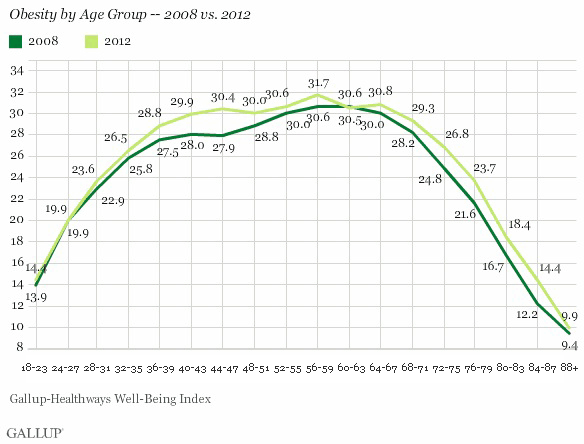Interesting tweet storm by “Haunted Clockwork Emergency Mouse” re-tweeted by Eliezer Yudkowsky, who has a lot of interest in dieting in addition to the typical Ai stuff:
The evidence for this is the large number of skinny guys (who often view themselves as being conscientious about their diet and exercise) failing just as spectacularly at gaining weight as most fat people do at losing it.
— Haunted Clockwork Emergency Mouse (@jeanpaulblartre) June 24, 2024
Yeah the biggest eye opener on this is watching people try to intentionally gain weight, and seeing how hard it is. If obesity were merely a matter of willpower and intemperance, then surely anyone should be able to gain weight literally effortlessly!
— Haunted Clockwork Emergency Mouse (@jeanpaulblartre) June 19, 2024
This is wrong. It’s not hard, as evidenced by the steadily increasing percentage of people worldwide who are obese or overweight. The number of people who find it hard to gain weight are vastly outnumbered by the opposite. It’s not at all symmetrical in that gaining weight is as hard as losing it, except for possibly a handful of ‘metabolic outliers’ or those with an undiagnosed medical condition that causes malnutrition, like Crohn’s disease or parasites.
As further evidence of this, there are only two Reddit threads–/r/gainit and /r/weightgain–devoted to intentional weight gain, compared to at least a hundred dieting subs, in addition to many more subs in which weight loss is implicitly a desired goal. Moreover, many of these people who are trying to gain weight are bulking in the context of bodybuilding, not people who are unable to gain weight at all for medical reasons.
From the post GLP-1 weight loss drugs will not end the worldwide obesity epidemic:
There is no evolutionary justification to lose weight, or at least more reasons to gain weight than lose it as far as survival is concerned. Even the most grotesquely morbidly obese still live long enough to reproduce. On Reddit there are probably dozens of dieting subs, each active and full of members, yet only two subs devoted to intentional weight gain (r/gainit and one other I forget).
Second, it becomes easier to gain weight with age. Many of these people who find it hard to gain weight are in their teens or early twenties are are still growing and do lots of physical activity, like sports. Naturally wiry-thin (not skinny-fat) middle-aged people who find it hard to gain weight despite tracking calories and intentionally trying to eat in a surplus, and are also sedentary, are rare.
Go onto powerlifting or bodybuilding forums: they are full of people who find it incredibly difficult to add significant amounts of bodyweight (read, beyond the first ten pounds of scale weight you might gain when you increase your food intake).
— Haunted Clockwork Emergency Mouse (@jeanpaulblartre) June 22, 2024
This is also wrong. It’s incredibly hard to gain muscle mass, not weight in general. Gaining fat is way easier than muscle, and is undesired. The vast majority of those people on those forums are trying to lose weight, like ‘making weight’ for competition or leanness in general, not gain weight.
Interesting “VB Knives” post:
The median age of the USA in 1970 was 28.
In 2024 the median age of the white population was 44.
So keep that in mind when you see those crowd pics from the 60s and 70s.
A lot happened but first and foremost everyone got old. https://t.co/vHHAFF2vqH
— VB Knives (@Empty_America) June 25, 2024
It’s hard to know for sure how many obese/overweight people there were in the pre-internet era. It’s obviously fewer than today percentage-wise, which can be explained by demographics (e.g. increasing age and overweight Hispanic populations), but I don’t think people were uniformly as lean as internet folk wisdom would suggest. I believe a lot of obesity was underreported back then. Many people got fat with age during the ’50s and ’60s and were not photographed as often and fell out of the medical system. Age is a major and often overlooked factor in regard to rising obesity rates, as VB notes:

To get an idea of how significant this is, there is a doubling of the obesity rate from ‘under 20’ to the 40-50-year-old bracket.
Also, nowadays, due to widespread health insurance and more advanced drugs, measuring bodyweight precisely is more important, like for calculating insurance premiums or dosing drugs. This means a lot of people today who may be just over the overweight or obese BMI cutoffs being classified as either. Someone with a BMI of 25-26 in the 1960s who does not appear overweight in photos would now technically be overweight by exact measurements and part of the 75% of Americans who are overweight or obese.